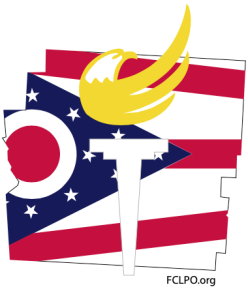Some years ago there was a science fiction series called Babylon 5. As one of the many running storylines, one of the alien races called the Centauri invaded and occupied the homeworld of another alien race called the Narn. In exchange for help from the former Narn ambassador in eliminating the insane Centauri Emperor, the Centauri ambassador promised to end the occupation of the Narn homeworld.
As the Centauri were withdrawing, the Centauri ambassador’s aide, one of the more sympathetic characters in the series, looked out a window to watch the Narn celebrations and said, “What was it all for?”
On the eve of the 20th anniversary of the September 11th attacks, watching our withdrawal from Afghanistan and the Taliban, the group we invaded to overthrow, retake control of the country, I have to ask myself the exact same question.
What was it all for?
The government and military we put it placed couldn’t surrender fast enough to the Taliban. Every gain women made in the last 20 years evaporated seemingly overnight as the pre-invasion status quo reasserted itself.
What was it all for?
Trillions of dollars spent, thousands of lives lost or maimed just for everything to go back to the way it was.
What was it all for?
Or better yet, what can we learn from it?
Maybe countries don’t like being occupied, even if it’s “for their good.” The Soviet Union invaded in 1979 and eventually declared it unwinnable and withdrew with their tail between their legs. We just did the same after 20 years. Even the great and glorious British Empire tried their hand at it a few times in the 1800s and eventually decided to finally withdraw after the third Anglo-Afghan War in 1919.
(It’s telling that Dr Watson from the original Sherlock Holmes stories was wounded during Britain’s war in Afghanistan, and the Dr Watson from the recent modern-day Sherlock was also wounded in the modern-day war in Afghanistan.)
I joked recently that Afghanistan must be a pretty impressive country having fought three global super powers to a standstill.
I also found it interesting when President Biden recently remarked that citizens with guns wouldn’t stand a chance against a government with F-15s.
Apparently, they can.
“But what of the Afghan citizens?” You may ask, “What about all the women who had a taste of freedom and, overnight, are back to the world of The Handmaid’s Tale?”
I’ll be the first to admit that it’s sad and tragic, but what is the alternative? The speed with which the country fell and the speed with which the Afghan army rushed to surrender tells me that whatever “gains” Afghan society made under our occupation would not have survived our eventual withdrawal whenever that may have been. I really don’t want to say this, but, from firsthand reports from the ground, it almost seemed like all the men couldn’t wait to be back under Taliban rule. That doesn’t say a whole lot for a country we “liberated”.
There is a line from another television show that seems germane to the situation, “Sometimes the only choices you have are bad ones, but you still have to choose.”
Ken Holpp, Communications Director, FCLPO
